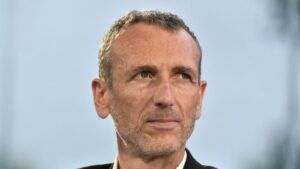The International Sustainability Standards Board (ISSB) has told COP15 delegates it will be defining sustainability as “inextricably” linked to nature in its disclosure standards.
Speaking on Finance Day yesterday at the conference in Montreal, Emmanuel Faber (pictured), ISSB chair, said the board wanted to clarify the definition and move away from the “alphabet soup” of ESG disclosures to a global, common language of sustainability-related financial disclosures.
Nature of value
“The value created by your company is inextricably linked to the stakeholders that it works with and serves, to the society in which it operates and to the natural resources on which it depends,” he said.
Faber called this “the nature of value”.
Giving more details of the wording in the standards, the ISSB said: “Sustainability will be described in the ISSB’s General Sustainability-related Disclosures Standard (S1) as the ability for a company to sustainably maintain resources and relationships with and manage its dependencies and impacts within its whole business ecosystem over the short, medium and long term.”
The clarification borrows from concepts in the Integrated Reporting Framework, Faber told the COP15 conference.
He commented it was important to clarify how “financial value creation is affected by the proper preservation, development and regeneration of all the resources and the relationships (including natural and human) needed for a company to achieve its goals” despite ISSB’s focus being on information for investors.
Faber also emphasised the link between climate and biodiversity, and said ISSB will immediately start building a connection between the climate standards it is developing and issues around natural ecosystems, deforestation, water, biodiversity and the just transition.
Tragedy of accounting
According to Faber, some of the challenges we have with tackling the biodiversity and climate crises are to do with our perceptions and with what gets counted.
“Today, as much as there is a tragedy of value, there is a tragedy of accounting. We count many, many important things. [But we] don’t count water, we don’t count oil. We count the price for extracting the oil, but not the fact that it takes 100 million years to make it.
“We do not count for the soil degradation. Soil is not an asset class. You cannot have a damage function on an asset class that is zero, said.”
The ISSB was created just over a year ago to address this lack of connectivity, Faber stated.
He encouraged delegates to take a step back when looking at the climate and ecological crisis, saying nature impacts everything, including the economy.
“And that includes what we call finance, which is supposed to be a system disconnected somewhere. There is no system. We are, you are the system.
“Don’t look at it as you know something difficult to change. It’s just changing us and that’s probably why it is so difficult.”
Finally, Faber told the conference there was an invitation to re-write economics “in order to make sure we have the proper economics to guide us through the transition, by connecting us with life. Because we’ve probably disconnected ourselves and certainly, we in finance are deeply disconnected.”
Adviser appointments
ISSB also announced yesterday its work on natural ecosystems and just transition was being supported by the appointment of two special advisers, Karin Kemper and Geordie Hungerford.
Kemper was recently global director for environment, natural resources and blue economy at the World Bank where she drove policy and strategic direction of the World Bank’s work on the economics and finance of biodiversity. At ISSB she will provide strategic counsel on a range of natural ecosystem topics.
Hungerford is CEO of the First Nations Financial Management Board in Canada. ISSB noted he is a Gwich’in , a group whose traditional territories are in the Northwest Territories and Yukon of Canada and in Alaska. He will provide strategic counsel on issues important to Indigenous Peoples, including biodiversity.

